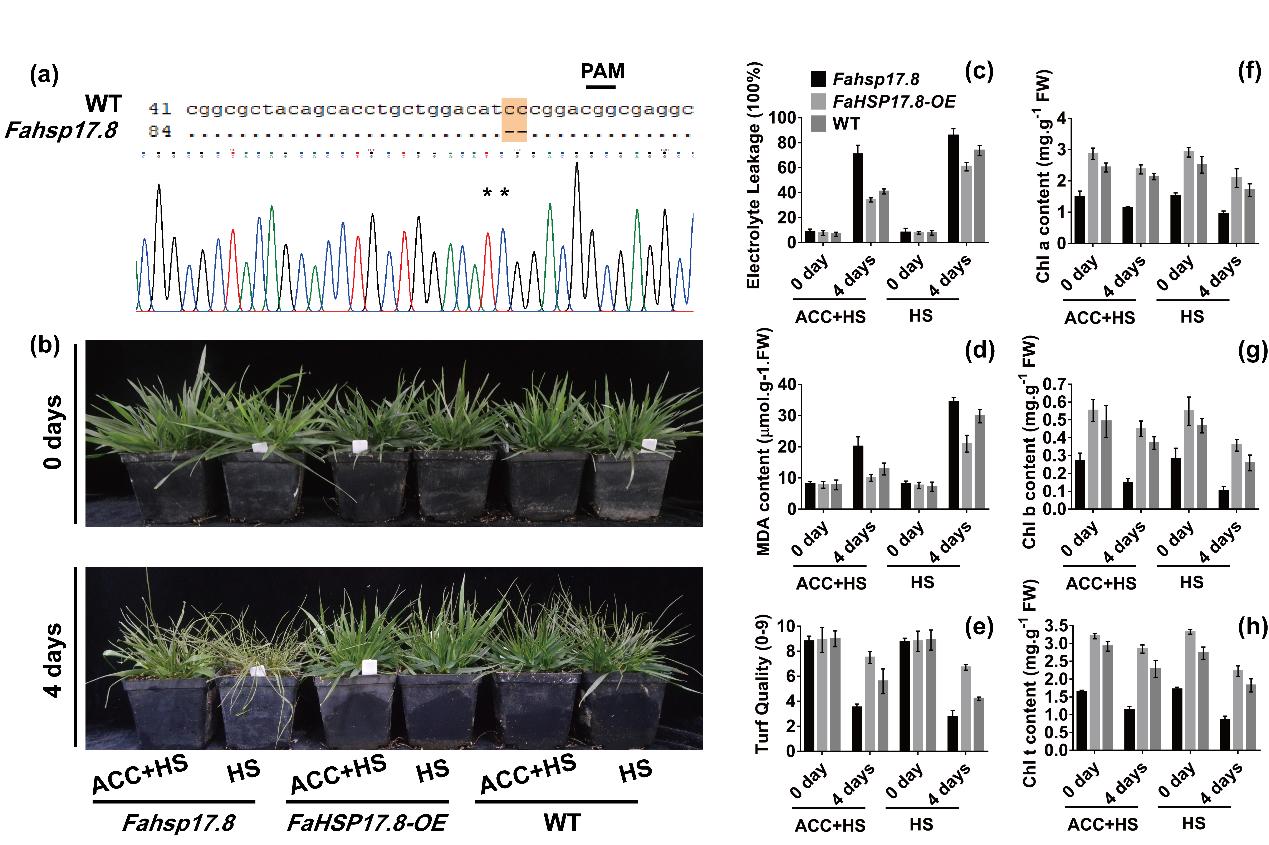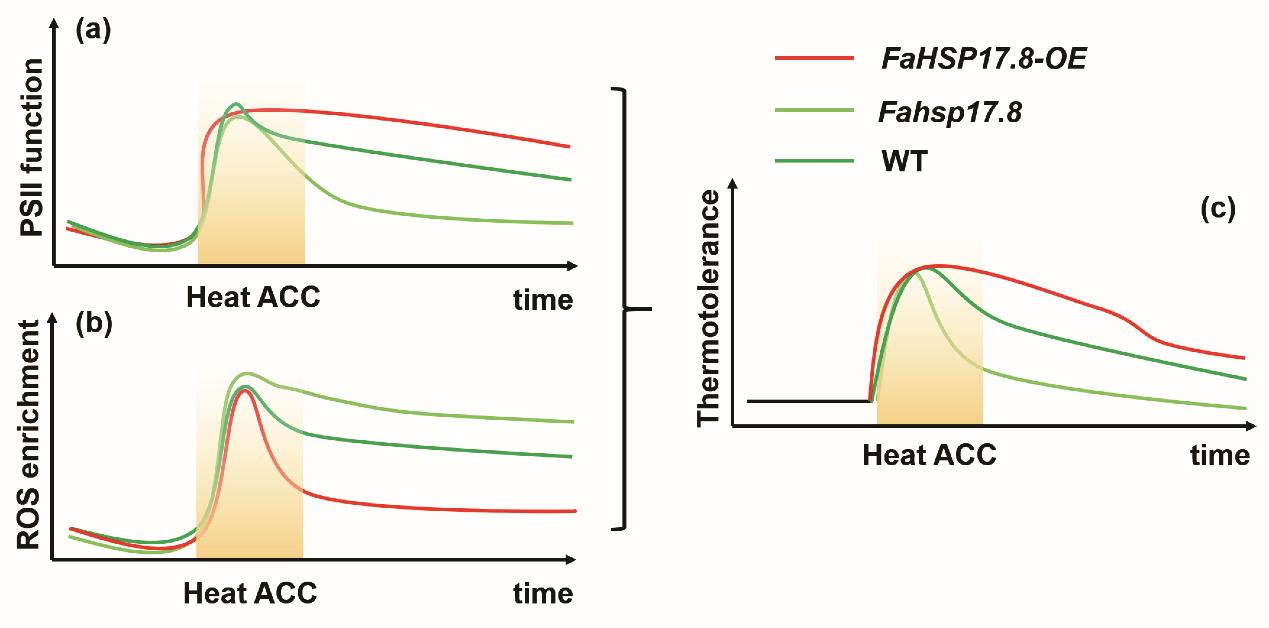Name:HU Tao
Tell:
Email:Hut420@wbgcas.cn
Organization:Wuhan Botanical Garden
Stress Memory Enhances the Thermotolerance in Tall Fescue
2021-09-02
To cope with high-temperature stress, grass often adopt a memory response by remembering one past recurring stress and preparing a quicker and more robust reaction to the next stress exposure. However, little is known about the molecular mechanisms of thermomemory in response to heat stress (HS) in cool-season turfgrass.
The Molecular Breeding of Turfgrass and Forage Grass Group at Wuhan Botanical Garden characterized a transcriptional memory gene, FaHSP17.8-CII, in a cool-season turfgrass species, tall fescue. The thermomemory of FaHSP17.8-CII could continue for more than four days and was associated with a high H3K4me3 level in tall fescue under HS.
Furthermore, heat acclimation or priming (ACC)-induced ROS accumulation and PSII electron transport were memorable and FaHSP17.8-CII was required for this memory response. However, in the mutant Fahsp17.8-CII generated using CRISPR/Cas9, ACC (ACC+HS) did not significantly decrease the ROS accumulation, the degeneration of chloroplast ultra-structure and the inhibition of PSII function compared to HS alone. Overexpression of FaHSP17.8-CII in tall fescue reduced ROS accumulation and chloroplast ultra-structure damage, and improved chlorophyll content and PSII function under ACC+HS compared with that under HS alone.
This finding reveals a novel work module of FaHSP17.8-CII–PSII-ROS to regulate the transcriptional memory response to HS in cool-season turfgrass.
This study entitled “Stress memory gene FaHSP17.8-CII controls thermotolerance via remodeling PSII and ROS signaling in tall fescue” has been recently published in Plant Physiology.
BI Aoyue from Wuhan Botanical Garden and WANG Tao from Henan University of Science and Technology are the first authors of the paper. HU Tao and CHEN Liang of Wuhan Botanical Garden and FU Jinmin of Ludong University are corresponding authors of the paper. The study was supported by the National Natural Science Foundation of China and the Major Science and Technology Special Projects of Shandong Province.

Fahsp17.8-CII mutant reduces heat memory and thermotolerance, but overexpressing FaHSP17.8-CII enhances them (Image by WBG)

A proposed model depicting the thermomemory mediated through FaHSP17.8-CII–PSII-ROS work module in tall fescue (Image by WBG)